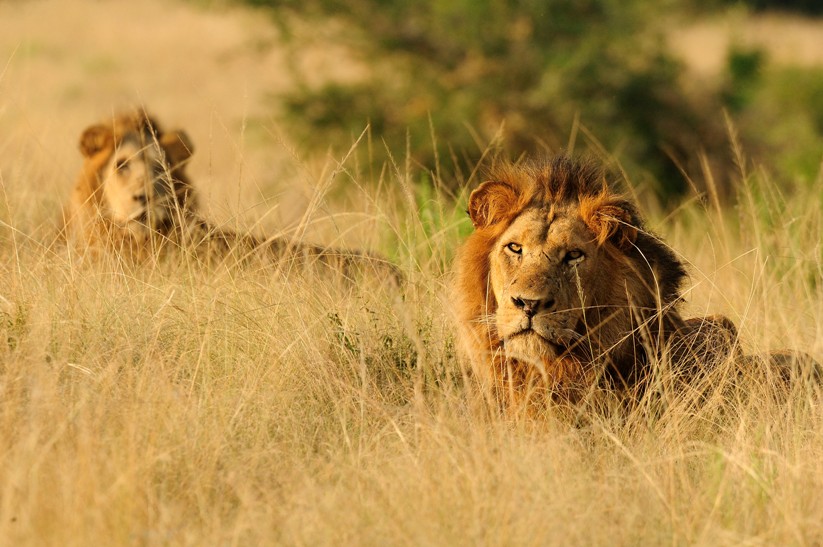Lions May Be Losing Their Reign in Uganda

As the largest predator in Africa, the lion has earned its place at the top of the food chain and the title "king of beasts." But the reign of the noble lion could be coming to a close in parts of Uganda, a new study suggests.
One of the reasons for the lion's decline in this part of Africa is poisoning by local ranchers, whose livestock are frequently killed by lions, and other human-related conflicts.
Researchers from the New York-based Wildlife Conservation Society (WCS) and the University of St. Andrews in Scotland analyzed the density and population distribution of the African lion in three of Uganda's national parks. [In Photos: The Life of a Lion]
In two of the parks surveyed — Queen Elizabeth National Park and Murchison Falls National Park — lion populations have decreased by 30 and 60 percent, respectively, over the past 10 years. Only in Kidepo Valley National Park, in the northeastern part of Uganda, was the number of lions found to be increasing, climbing from 58 to 132 in the last decade.
The decline in lion populations in these parks, once believed to be the last strongholds of the species in Uganda, is deeply troubling to conservationists. Many fear for the lions' long-term chances of survival in the country and worry about the effect that declining lion populations could have on other species.
"Conservation areas, such as Queen Elizabeth and Murchison Falls, which formerly contained the highest biomass of mammals on Earth, depend on the delicate balance between predators and prey," James Deutsch, executive director of WCS' Africa Program, said in a statement. "Their loss would permanently alter two of Africa's great ecosystems."
But the lion-population declines in Uganda reflect a larger conservation challenge extending across the entire African continent: In the past two decades, the number of lions in Africa has declined by as much as 30 percent, and researchers believe there may be as few as 32,000 of the big cats left on the continent.
Get the world’s most fascinating discoveries delivered straight to your inbox.
Already near extinction in both western and central Africa, lions are on the losing side of a battle with locals, who view them as a threat to their livelihood.
Yet, for other members of the Ugandan population, losing lions could prove to be just as detrimental as having them for neighbors. According to Andrew Plumptre, the WCS' director in Uganda, lions are the animals that tourists most look forward to seeing when visiting the country. And a recent WCS survey suggests that tourists would be 50 percent less likely to visit Uganda's national parks if lions were nowhere to be seen.
The study is detailed in the latest edition of the conservation journal Oryx.
Follow Elizabeth Palermo on Twitter @techEpalermo, Facebook or Google+.Follow us @livescience, Facebook & Google+. Original article on LiveScience.
 Live Science Plus
Live Science Plus






